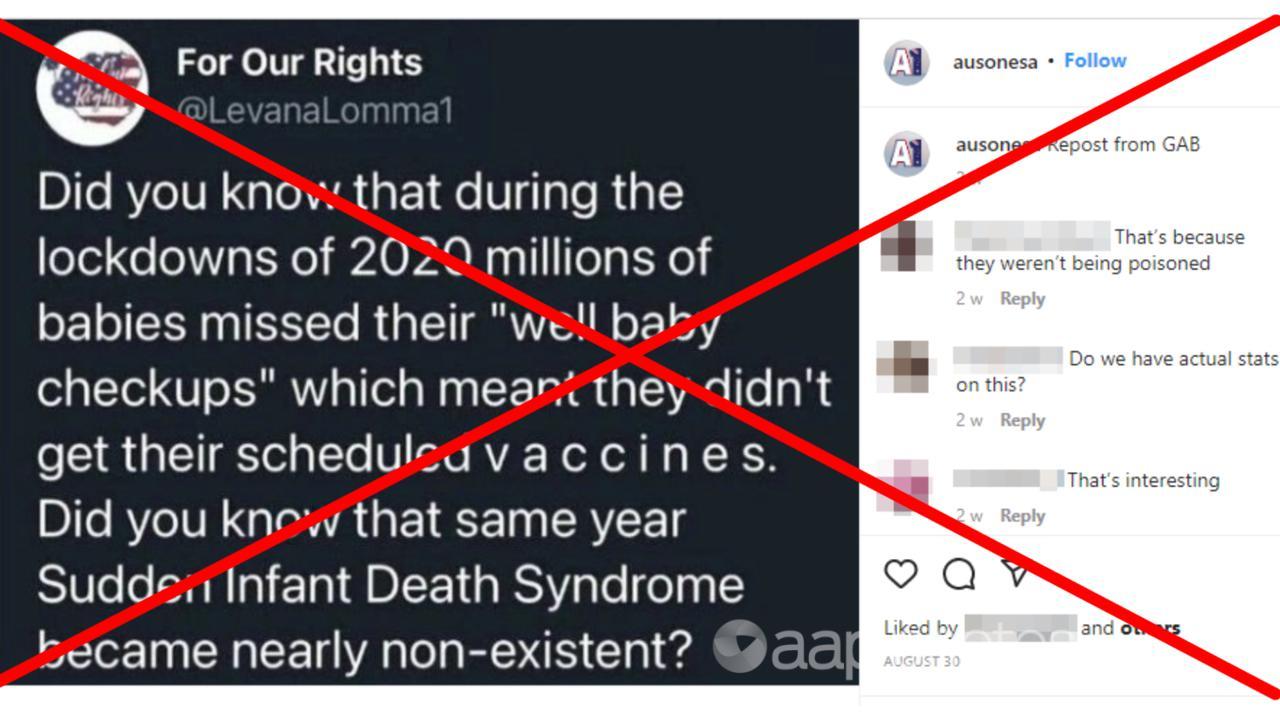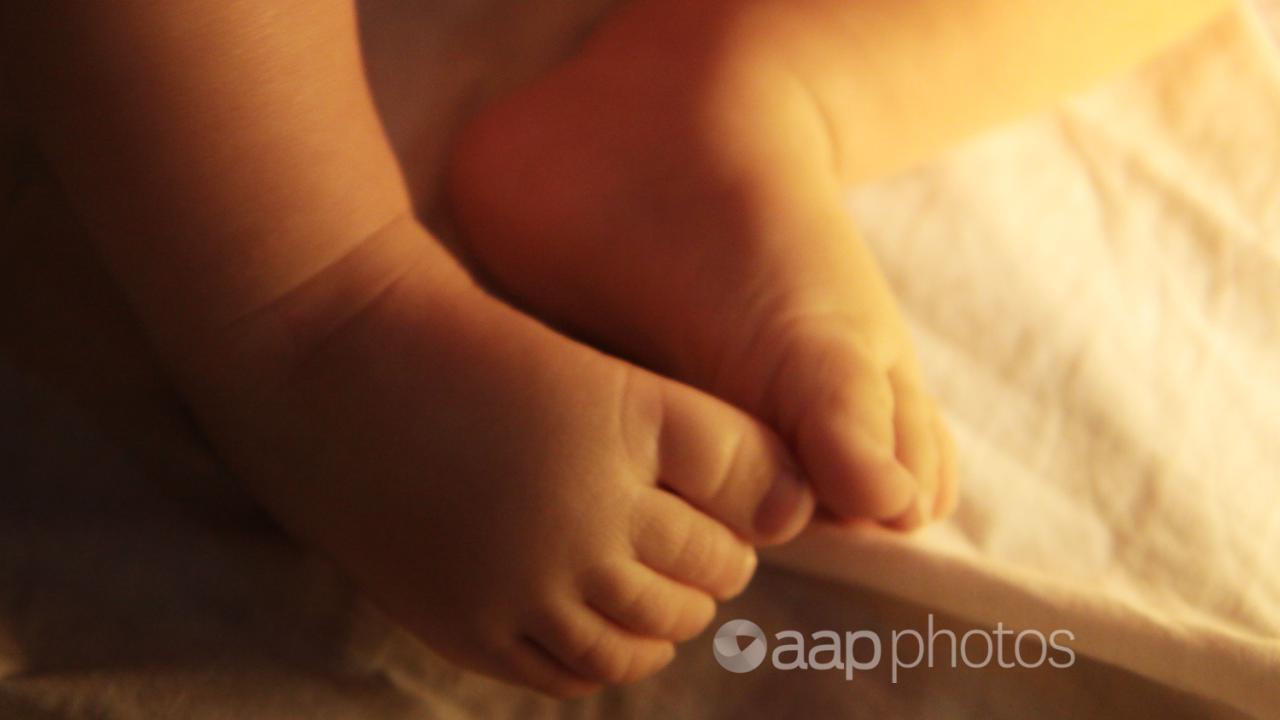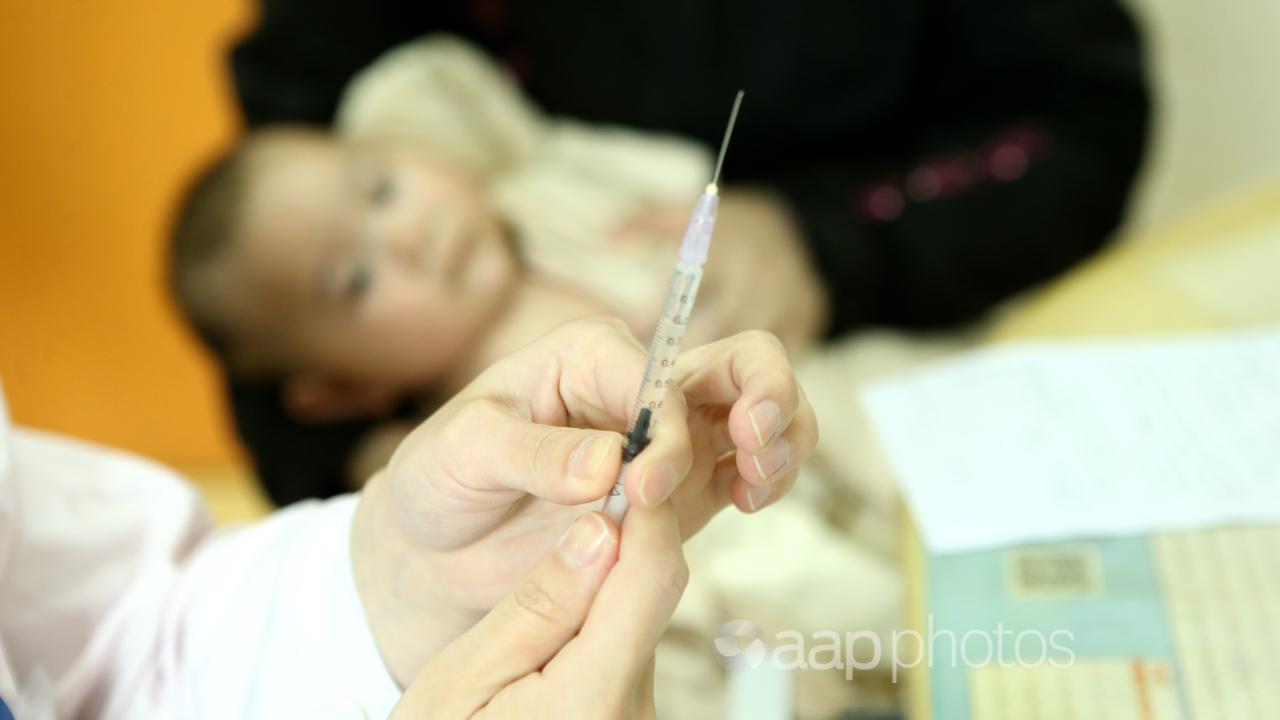An Instagram meme links infant vaccinations with Sudden Infant Death Syndrome, claiming SIDS was almost “non-existent” while babies missed their jabs during COVID lockdowns in 2020.
The claim is false. Data shows SIDS-related deaths actually increased in the US in 2020, while experts told AAP FactCheck there is no evidence vaccines contribute to the tragic deaths of infants.
The meme (screenshot here), posted by an Australian user, says: “Did you know that during the lockdowns of 202 millions of babies missed their ‘well baby checkups’ which meant they didn’t get their scheduled vaccines” and ” that year Sudden Infant Death Syndrome became non-existent”.

The claim children missing vaccinations in 2020 led to a decrease in SIDS is incorrect on multiple fronts. Firstly, childhood mortality data does not support the claim that SIDS numbers dropped significantly in 2020.
In the US, where the post originated, SIDS cases actually increased in 2020. Data from the Centers for Disease Control and Prevention show there were about five more SIDS cases per 100,000 births in 2020 than in 2019.
Australian data showed a slight decrease in the rate of SIDS in 2020, but the numbers were still in keeping with the general trend, and the incidence of SIDS was higher than in 2016.
SIDS cases have been trending downwards over the past few decades as our understanding of sudden infant death improves and better health practices are put into place.
Cases have been steadily decreasing in Australia since the mid-1980s, and case numbers have been consistently under 100 a year for almost two decades, as seen in the graph below.
The meme's assertion "millions of babies" missed their early childhood vaccines is also misleading. In Australia, childhood vaccination rates for children aged under one year increased in 2020 to 94.85 per cent.
Globally, childhood vaccination rates decreased by about three percentage points in 2020, from 90 per cent to 87 per cent. While the decrease would result in millions of children missing early childhood vaccinations, the majority in 2020 still received their jabs.
Several studies (here and here) have found vaccines do not contribute to SIDS, and the trend of cases decreasing in recent decades may be linked to increasing rates of childhood vaccination.
SIDS was defined in 1969 and categorises infant deaths where no other cause of death can be identified. The Australian government's Health Direct website defines SIDS as "the sudden, unexpected and unexplained death of an apparently well baby".
"Sometimes babies die from a serious illness or a problem that baby may have been born with. Sometimes it is because of a fatal sleep accident, for example, if they suffocate or get trapped or strangled. When no cause for the death can be found, it is called 'SIDS'," the website states
Rosemary Horne, a Sudden Unexpected Death in Infancy (SUDI) expert from Monash University, said there was no evidence to suggest a link between childhood vaccinations and infant death.
"No study has demonstrated an increased risk of SUDI with immunisation, and there is strong evidence that immunisation reduces the risk of SUDI," Professor Horne told AAP FactCheck in an email.
"Immunisation is a simple, safe and effective way of protecting against a number of infectious diseases. The risks of these are far greater than the risks of immunisation. The vast majority of babies in Australia have childhood immunisations as do most other countries where immunisation is easily available."

Prof Horne says there also is credible evidence to suggest vaccination significantly reduces the risk of sudden unexplained infant death.
"No study has demonstrated an increased risk of SUDI with immunisation," she said.
"In fact, several case control studies have confirmed the reverse, with SUDI less common in the immunised group compared with those not immunised. Some studies have even confirmed the SUDI rate in the immunised group is nearly half that in the non-immunised group."
Roger Byard, an expert on infant death based at the University of Adelaide, also confirmed there was no link between vaccines and SIDS.
"There is absolutely no evidence that SIDS is caused by vaccines - in fact most studies have shown a reduced risk of SIDS in immunized children. Rates of SIDS have remained about the same during COVID," Professor Byard told AAP FactCheck in an email.
The meme's claim has also been debunked here and here.
The Verdict
The claim Sudden Infant Death Syndrome was "non-existent" as children missed vaccines during lockdowns in 2020 is false. While it is correct there was a decrease in childhood vaccination rates, the rate of SIDS cases increased in the US in 2020. In Australia, there was a slight decrease recorrded for SIDS while vaccination rates for children aged under one increased.
Experts told AAP FactCheck there is no evidence of any link between childhood immunisations and SIDS. Studies show vaccines do not cause unexplained infant deaths and may reduce the risk of SIDS.
False - The claim is inaccurate.
* AAP FactCheck is an accredited member of the International Fact-Checking Network. To keep up with our latest fact checks, follow us on Facebook, Twitter and Instagram.
All information, text and images included on the AAP Websites is for personal use only and may not be re-written, copied, re-sold or re-distributed, framed, linked, shared onto social media or otherwise used whether for compensation of any kind or not, unless you have the prior written permission of AAP. For more information, please refer to our standard terms and conditions.


















